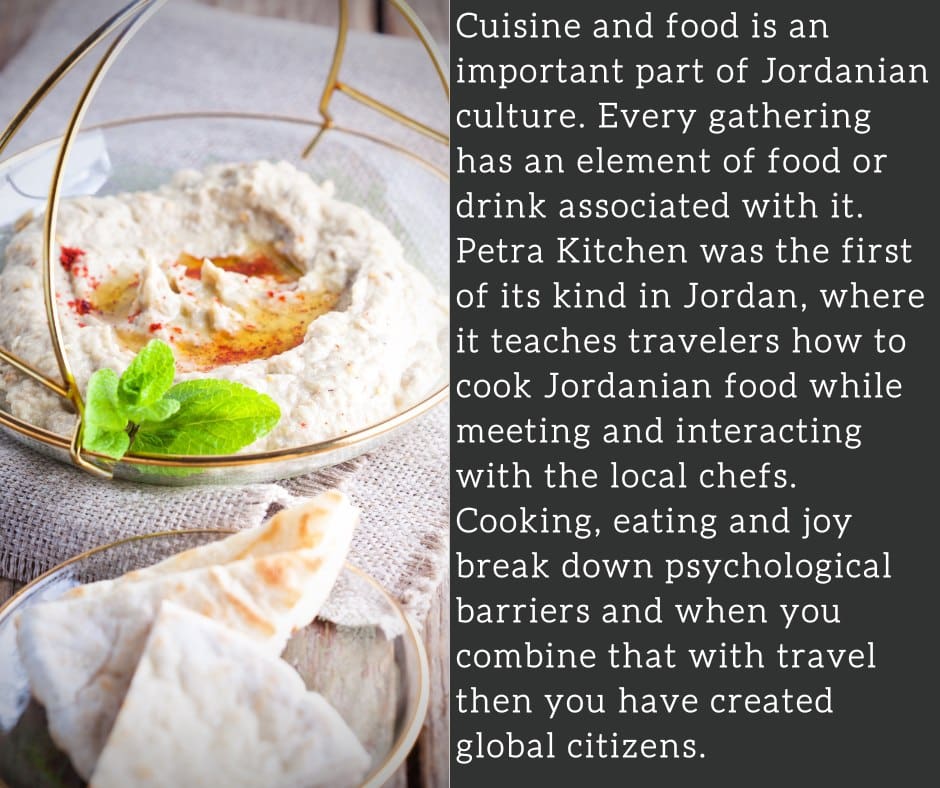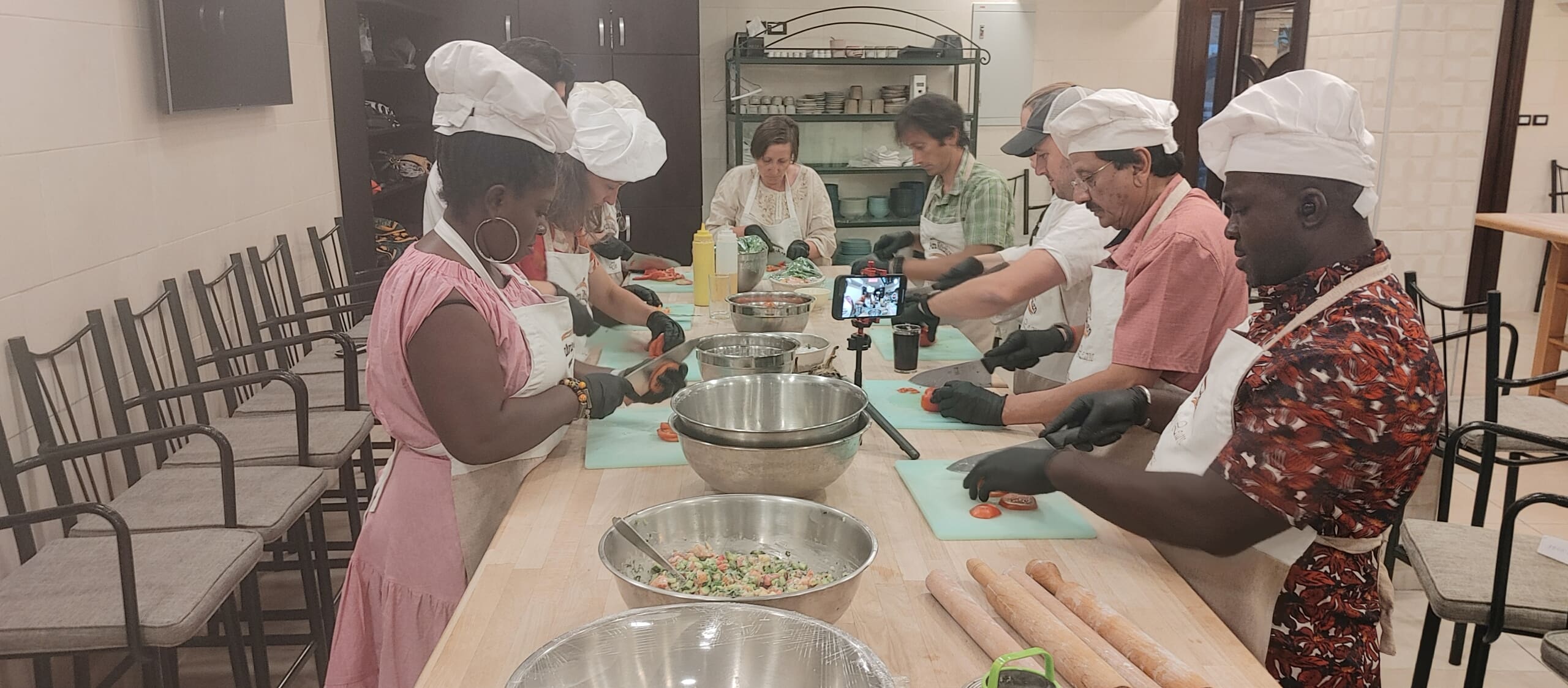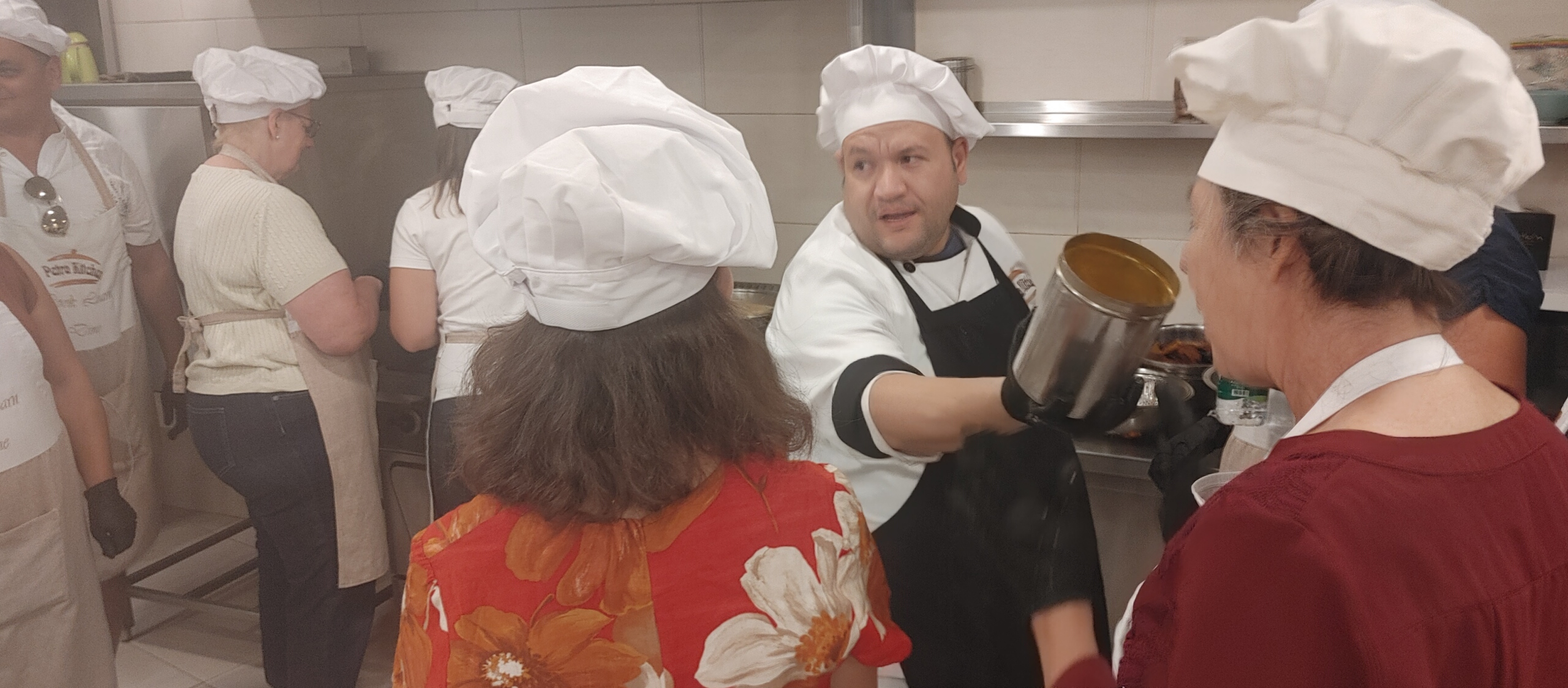Petra Kitchen has nightly cooking classes
IAN STALKER
Wendy Botham is sadly gone but she has left a lasting legacy in Petra that in part is demonstrated by a steady stream of foreign tourists who return home able to create such Jordanian staple foods as baba ghanoush and tabouli.
Transplanted American Botham — once an accountant for an oil company who entered the travel industry when she was hired to run a Florida resort — arrived in Petra in 1992 while backpacking around the world and was smitten by the archeological site, and decided to stay, working for tour company Petra Moon Tourism Services and later instrumental in founding Petra Kitchen in the town of Wadi Musa, which borders Petra Archeological Park.
Petra Kitchen invites visitors to take nightly classes on preparing Jordanian food in a spotlessly clean kitchen under the supervision of local chefs who have demonstrated a flair for creating their homeland’s dishes.
The facility doesn’t have fridges or freezers, daily buying the food to be used in its classes from local markets.

Any food made during the classes and left uneaten is given to needy families.
Botham died of an illness in 2014 and was interred in her adopted community, but her mark on Petra lives on, says Malia Asfour of the Jordanian Tourism Board North America.
“Wendy definitely left a legacy behind, she partnered with local Jordanians from Petra and opened Petra Moon, a DMC in Jordan that catered to experiential and educational tourism. She was the brainchild behind opening Petra Kitchen to link local communities with tourism through cooking,” says Asfour, who personally knew Botham.
“Cuisine and food is an important part of Jordanian culture. Every gathering has an element of food or drink associated with it. Petra Kitchen was the first of its kind in Jordan, where it teaches travellers how to cook Jordanian food while meeting and interacting with the local chefs. Cooking, eating and joy break down psychological barriers and when you combine that with travel then you have created global citizens.”

Tourists frequently “rave” about Jordanian food, Asfour continues.
Among those now providing pointers to tourists on preparing the likes of lentil soup and fattoush is Ahmad Daana, who says Petra Kitchen customers — who eat what they create — tend to “do a very good job.”
Daana, looking right at home in a chef’s jacket, learned to cook from his mother and is now happy to share his kitchen skills with people from other countries.
Among those who recently took a Petra Kitchen class was American travel agent Love Anokye, who was both impressed by the vegetarian options available in Jordanian food and the quality of the dishes she and her fellow travellers made.
“It makes you proud to cook your own food, eat it and find it tastes good,” she says, adding she found Jordanian culinary creations “user-friendly.”
Her brother David Anokye — also a travel agent who learned to cook through his travels — says he was inspired by Petra Kitchen and plans to continue cooking Jordanian dishes.

Karin Yates, also an American travel agent, found it “very easy”to make Jordanian food and “absolutely” plans to continue do so.
Yates appreciated Petra Kitchen’s format of dividing a large group into smaller teams. “Team work makes the dream work.”
Meanwhile, Jordanian tour guide Ahmad “Ace” Malhas gave the thumbs-up to the dishes prepared by the Anokyes, Yates and their fam trip colleagues, labelling it “the best food I’ve ever had, thank you very much.”
Meanwhile, Asfour realizes that Botham should be credited with being responsible for much of the enthusiasm the American travel agents and other Petra Kitchen visitors have developed for Jordanian cuisine.
“She was wonderful and a great asset to our industry and especially to Petra,” Asfour says. “She is missed.”
Tour companies that can send people to Petra Kitchen include Amin Kawar & Sons, which can be reached at kawartours.com.

















